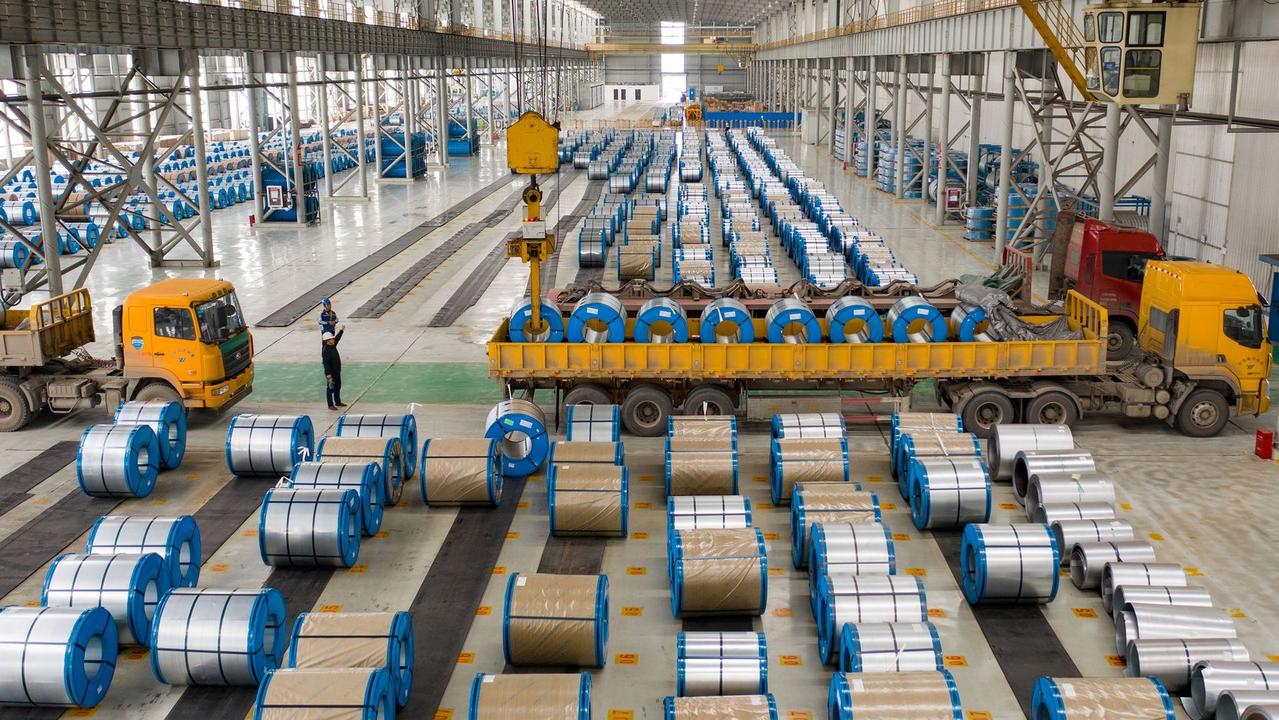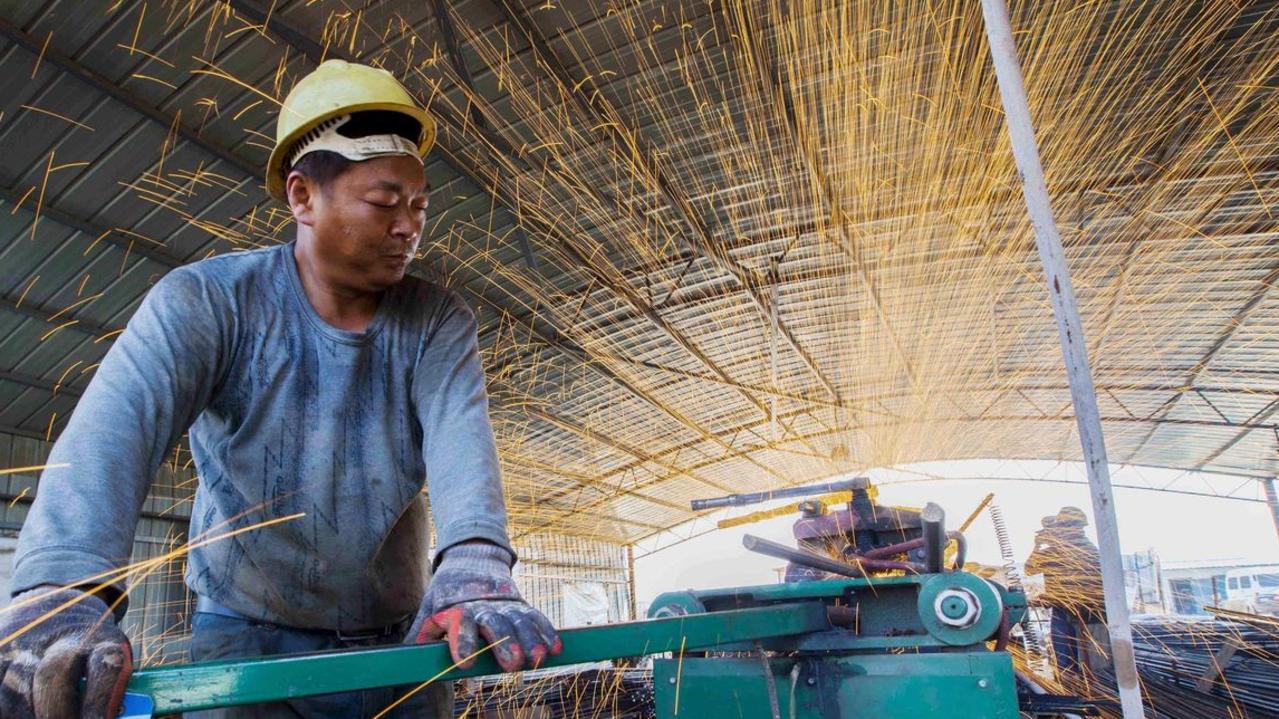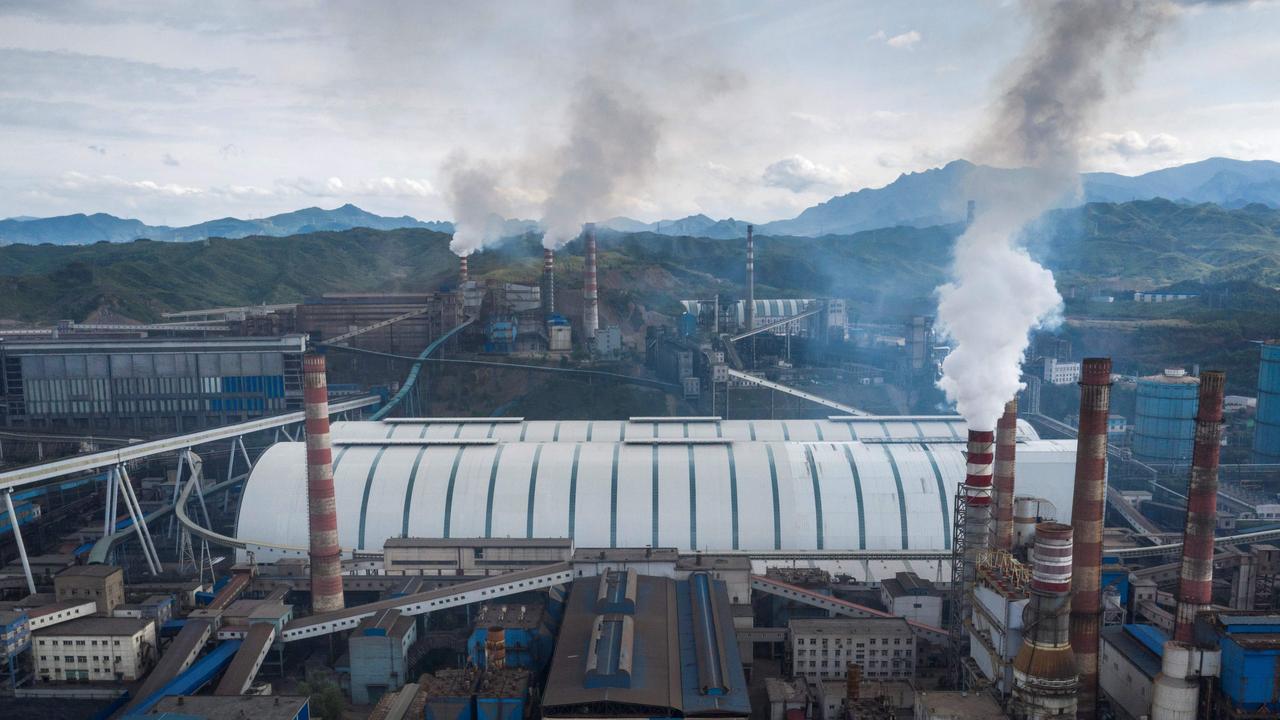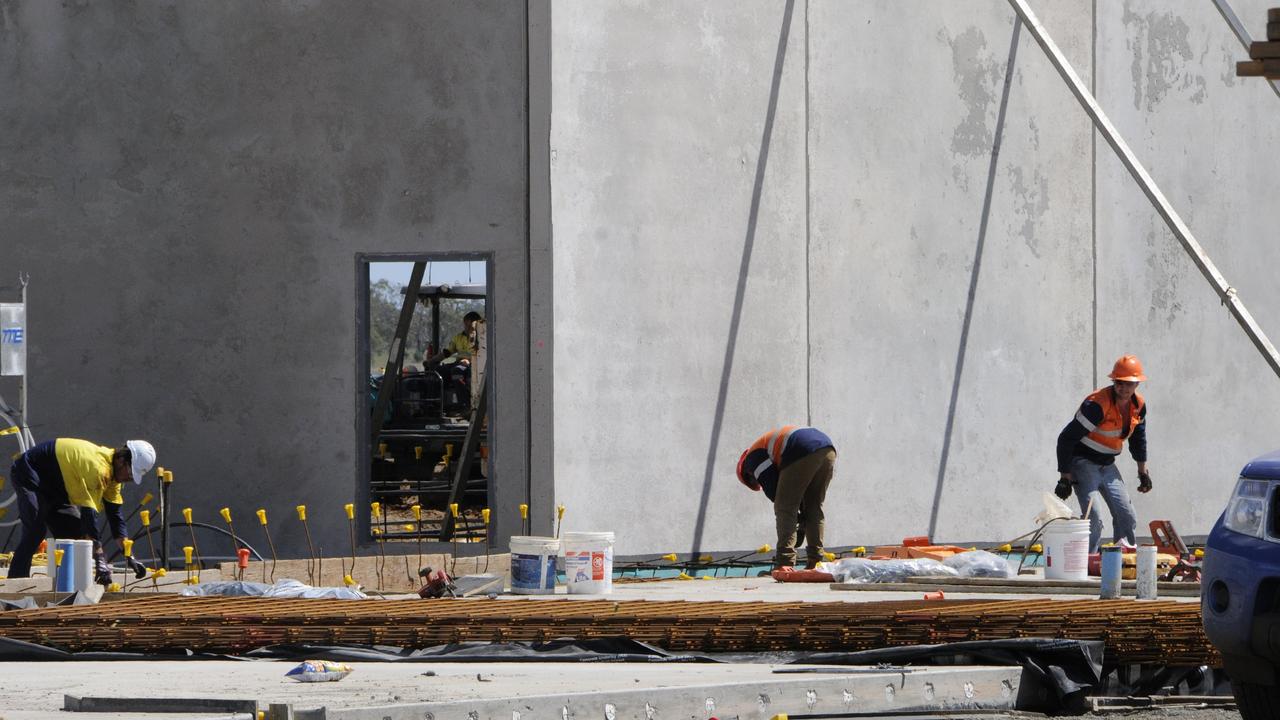China’s steel production to impact Australia’s construction industry
Huge price rises and shortages could have a severe impact on building houses, with a knock on effect on Australia’s biggest export – iron ore.
Australia’s booming construction industry could be impacted by China’s move to restrict steel production, with rising prices impacting the essential material used to build houses as well as threats to supply.
There are reports that Beijing is also planning to slap on extra taxes to steel imports, which would further push prices up, making many Aussie importers nervous about ordering from China.
It comes as Chinese traders are looking to cover themselves against any cost blowouts through new clauses in contracts with Australian importers, which would make them responsible for additional taxes levied in the future.
With Australia importing a third of its steel needs, the Australian Steel Association’s CEO David Buchanan warned the material is also becoming more challenging to source due to Covid-19’s impact on shipping causing port congestion.
“Steel prices have almost doubled in the past 12 months due to the Covid-19 pandemic impacts. Governments all over the world have sought to stimulate their economies by stimulating infrastructure and construction spending,” he told news.com.au.
“This coupled with (steel) mills slowing production due to the pandemic has lead to shortages from our major trader countries for the supply of steel including China, Taiwan, South Korea, Japan and Europe.”
RELATED: Australia’s fate in hands of China’s decision

China, which is the world’s largest steel exporter, reduced their export tax rebates on steel products in April effectively driving the price of exports up by 13 per cent, he added.
The prices of steel is rising globally as supply struggles to keep pace with demand, noted Commonwealth Bank’s mining and energy economist Vivek Dhar.
“The recovery in China’s steel demand pre-dates most other economies because of infrastructure-heavy stimulus deployed last year. But other economies, especially advanced economies are seeing demand lift now. Australia is seeing stronger demand too, which has seen prices lift substantially here,” he told news.com.au.
“Covid-19 outbreaks in China and elsewhere in Asia such as Vietnam, Thailand. Philippines and Indonesia are a downside risk for steel demand. This could see global steel demand grow slower than expected and apply downside pressure on steel prices.”
Slow steel supply growth outside China has also played a key role in the rise in steel prices, he noted.
RELATED: China will go to war with the world in next six years

May and June were the only months this year where crude steel output outside China lifted in year-on-year terms compared to 2019, up 0.5 per cent in May and 3 per cent in June.
The Chinese government is also placing pressure on its industry to lower steel production to reduce carbon emissions by 2030 as the material contributes about 15 per cent of total carbon emissions in the country.
The cancellation of it export rebates was part of its plan to put pressure on the Chinese steel industry, according to Mr Dhar.
However, steel output continued to rise by 11.8 per cent to 563.3 million tonnes in the first half of the year, although their are suggestions one of its biggest steelmaking areas in the north of China could cut production by almost 9 per cent for the rest of 2021.
“Despite these measures to target steel exports, China’s steel product exports have increased 31 per cent a year from January to July. High steel exports may see policymakers apply export tariffs on certain steel products,” he said.
“In the longer term, we see China looking to limit exports, which will likely keep traded steel markets tight and potentially locking in recent price gains.”

Mr Dhar noted that there had been reports of contingencies for steel-related costs in construction projects having to be lifted to take into account the recent increase in steel prices in Australia.
“If prices end up structurally higher because Chinese exports are limited, the recent cost increases will be here to stay,” he warned.
This could mean bad news for Australia’s most valuable commodity – iron ore because it is closely linked to the steel sector in China given it imports 70 to 75 per cent of the world’s iron ore imports, said Mr Dhar.
Iron ore is critical to Australia’s economy. Treasury predicts the value of the market will jump from $103 billion last year to $136 billion this financial year.
The world’s biggest steel producer, China Baowu Steel Group, flagged this month that it would slash output in the second half of the year, while the country also battles Covid-19 outbreaks halting construction projects.
“Weaker steel demand from Covid-19 in China can weigh on iron prices. But this will likely take a backseat to nation-wide steel output cuts with output cuts likely be harsher than any implied cut in steel demand from Covid-19,” Mr Dhar predicted.
“Another factor to consider is the policy response to Covid-19. Policymakers have enough fiscal firepower to boost economic growth via infrastructure-linked stimulus again if the latest Covid-19 outbreaks weighs heavily on growth. That could see steel demand recover and potentially reverse China’s plan to curb steel output in second half of 2021.”

Demand from China for Australian iron ore could already be slipping anyway as imports fell for the fourth consecutive month by volume, although tense diplomatic relations might not be to blame.
Iron ore prices have already moved sharply lower in the last fortnight on the prospect of weaker demand from China.
It’s not the only shortage that is impacting on Australia’s construction industry either. Back in June, Bunnings issued a warning that it would not tolerate abuse of its staff after experiencing “unprecedented demand” for timber, which had left shelves empty.




